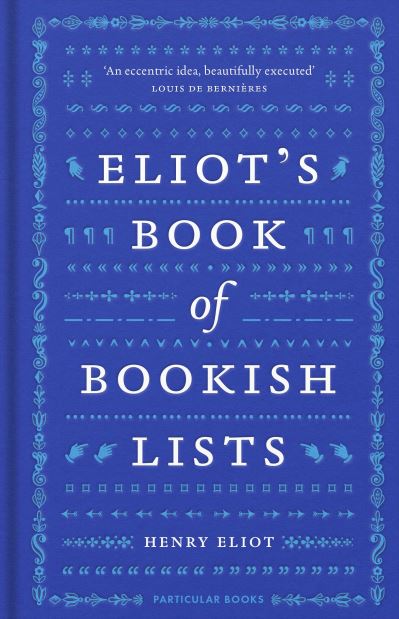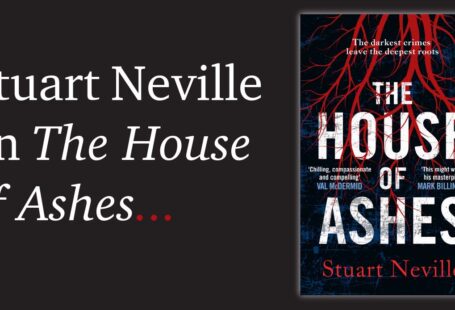We all make lists every day. They’re the most mundane form of writing – or are they? Lists can be much stranger than they appear. Shopping lists, to-do lists, wish lists – they all serve a practical function, but they can also be extremely revealing. In the memoir Roland Barthes by Roland Barthes, the French theorist includes a list with the title ‘J’aime, Je n’aime pas’, a simple list of things he likes – such as cinnamon, champagne, realistic novels and the Marx Brothers – and things he doesn’t like – white Pomeranians, geraniums, animated cartoons. ‘This is of no importance,’ he says. ‘And yet . . .’ The truth is that his lists form an extremely evocative and specific self-portrait. This is the paradox of lists: they are both supremely functional and uniquely personal. Perhaps it’s no surprise, then, that authors have always enjoyed incorporating lists into their novels, from François Rabelais to Herman Melville, Virginia Woolf and James Joyce. Eliot’s Book of Bookish Lists is a celebration of some of my favourite literary lists, with a smattering of my own. Here is a small selection.

I knew I wanted to include a list of the Ogham letters, the alphabet sometimes fancifully called the ‘Tree-Alphabet of the Druids’. The earliest records of the Irish language are written in Ogham: letters are arranged vertically and each one is named after a tree or woodland plant. There’s N for nuin (ash), for example, D for duir (oak) and I for iodhdadh (yew). Ogham also provides a nice connection to the Seven Dwarfs. In the fairy tale, the Brothers Grimm tell how Snow White shelters in a cottage with seven dwarfs, but their names are not given, so adaptations have had to invent their own, and in the 2012 film Snow White and the Huntsman, the dwarfs are all named after letters of the Ogham alphabet. A hundred years earlier, a 1912 Broadway adaptation called the dwarfs Blick, Flick, Glick, Snick, Plick, Whick and Quee, and in 1937, Walt Disney chose Doc, Grumpy, Happy, Sleepy, Bashful, Sneezy and Dopey from a shortlist that also included Awful, Biggy, Chesty, Dirty, Flabby, Gloomy, Hotsy, Lazy, Nifty, Puffy, Shifty and the rather touching Wistful.
I was also keen to include the grades of the filid. In ancient Ireland there were strict grades among professional poets, related to the number of stories each fili had memorised. These were: oblaire (5 stories), drisiuc (10 stories), taman (20 stories), fochloc (30 stories), macfuirmid (40 stories), dos (50 stories), cano (60 stories), clí (87 stories), ánruth (175 stories) and ollam (350 stories). According to the eighth-century manuscript Uraicecht na Ríar, it took at least twelve years to reach the highest grade of ollam, at which point a fili was entitled to wear a cloak of crimson bird feathers and carry a wand of office.
The book has lists from Gulliver’s Travels and Tristram Shandy. Samuel Beckett features in a list of literary fart jokes and Flann O’Brien’s The Third Policeman appears in the list of ‘fictional works in works of fiction’, but the Irish author who appears in the book more than any other is, naturally, the greatest of list-makers, James Joyce. He is listed among the authors who could have won the Nobel Prize, but didn’t; Davy Byrne’s has pride of place in the list of literary pubs; there’s a list of the ten 100-letter ‘thunder words’ that pepper Finnegans Wake; but perhaps his most famous list is the inventory of Leopold Bloom’s kitchen drawer, in the penultimate episode of Ulysses. Bloom’s man-drawer contains faded photographs, a letter from his daughter, a pink ribbon, some Austrian-Hungarian coins, two erotic postcards, a Victorian stamp and a recipe for boot polish among several pages’ worth of other miscellaneous items, all of which provide intimate insights into his character.
The human urge to make lists is very old. Experts agree that writing was first invented five thousand years ago in order to record lists of goods and livestock. As the novelist Umberto Eco wrote: ‘The list is the origin of culture. It’s part of the history of art and literature. What does culture want? To make infinity comprehensible. . . . And how, as a human being, does one face infinity? How does one attempt to grasp the incomprehensible? Through lists.’
Henry Eliot is the author of Eliot’s Book of Bookish Lists (Particular Books, October 2022).






Recent Comments